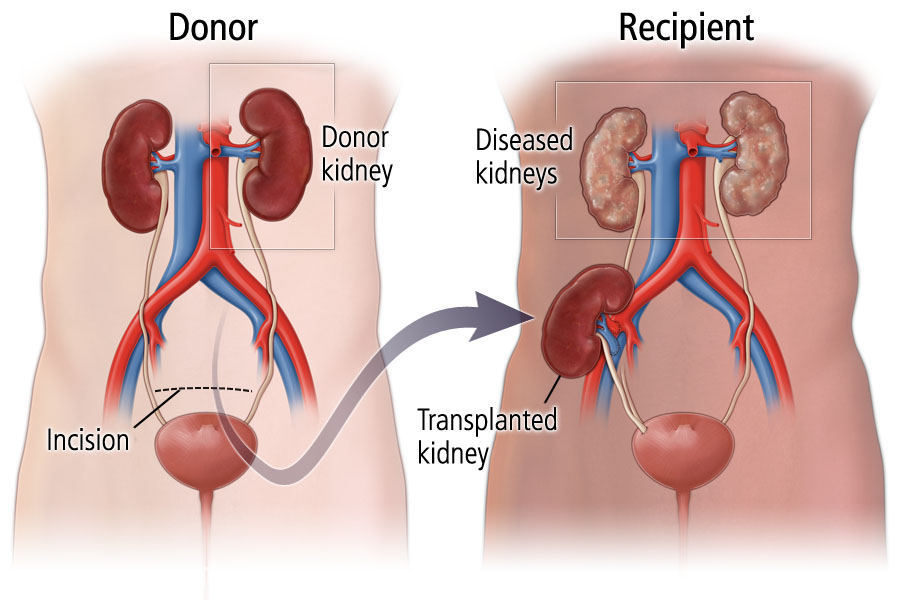Deceased donor kidney transplant

In a kidney clinic overseen by Dr. Anil Patel, deceased donor kidney transplant programs play a significant role in providing life-saving treatment to patients with end-stage renal disease (ESRD). Here’s an overview of the process involved in deceased donor kidney transplants:
Patient Evaluation and Listing: Patients with ESRD undergo a comprehensive evaluation by Dr. Patel and his team to determine their eligibility for kidney transplantation. This evaluation includes assessing the patient’s overall health, kidney function, and suitability for surgery. If deemed appropriate, the patient is placed on the deceased donor kidney transplant waiting list.
Organ Procurement and Allocation: Dr. Patel’s clinic collaborates with organ procurement organizations (OPOs) to facilitate the retrieval of kidneys from deceased donors. Organs are allocated based on factors such as compatibility, medical urgency, waiting time, and donor-recipient matching. Dr. Patel ensures that patients on the waiting list are appropriately matched with available donor kidneys.
Transplant Surgery: Once a suitable deceased donor kidney becomes available, Dr. Patel and his transplant surgical team perform the kidney transplant surgery. The deceased donor kidney is implanted into the recipient’s body through a surgical procedure. The surgical team meticulously monitors the procedure to ensure proper placement and function of the transplanted kidney.
Post-Transplant Care: Following the transplant surgery, Dr. Patel and his team provide comprehensive post-transplant care to monitor the recipient’s recovery and kidney function. This includes administering immunosuppressive medications to prevent rejection, managing any surgical complications, and monitoring for signs of rejection or infection.
Immunosuppression Management: Dr. Patel oversees the administration of immunosuppressive medications to prevent the recipient’s immune system from rejecting the transplanted kidney. He monitors the patient’s response to immunosuppression and adjusts medication regimens as needed to balance the risk of rejection with the risk of infection and other side effects.
Long-Term Follow-Up: Dr. Patel conducts regular follow-up appointments with the transplant recipient to assess kidney function, monitor for complications, and adjust medication regimens as needed. Long-term follow-up care is essential to ensure the success and longevity of the transplanted kidney.
Patient Education and Support: Dr. Patel educates the transplant recipient and their caregivers about the importance of medication adherence, monitoring for signs of rejection or infection, maintaining a healthy lifestyle, and seeking prompt medical attention if any concerns arise. He also provides emotional support and guidance throughout the transplant journey.
Collaboration with Multidisciplinary Team: Dr. Patel collaborates closely with other members of the transplant team, including transplant surgeons, nephrologists, transplant coordinators, social workers, and dietitians, to provide comprehensive and coordinated care to transplant recipients.
Overall, deceased donor kidney transplants at Dr. Anil Patel’s kidney clinic involve a multidisciplinary approach focused on ensuring successful outcomes and improving the quality of life for patients with ESRD.
